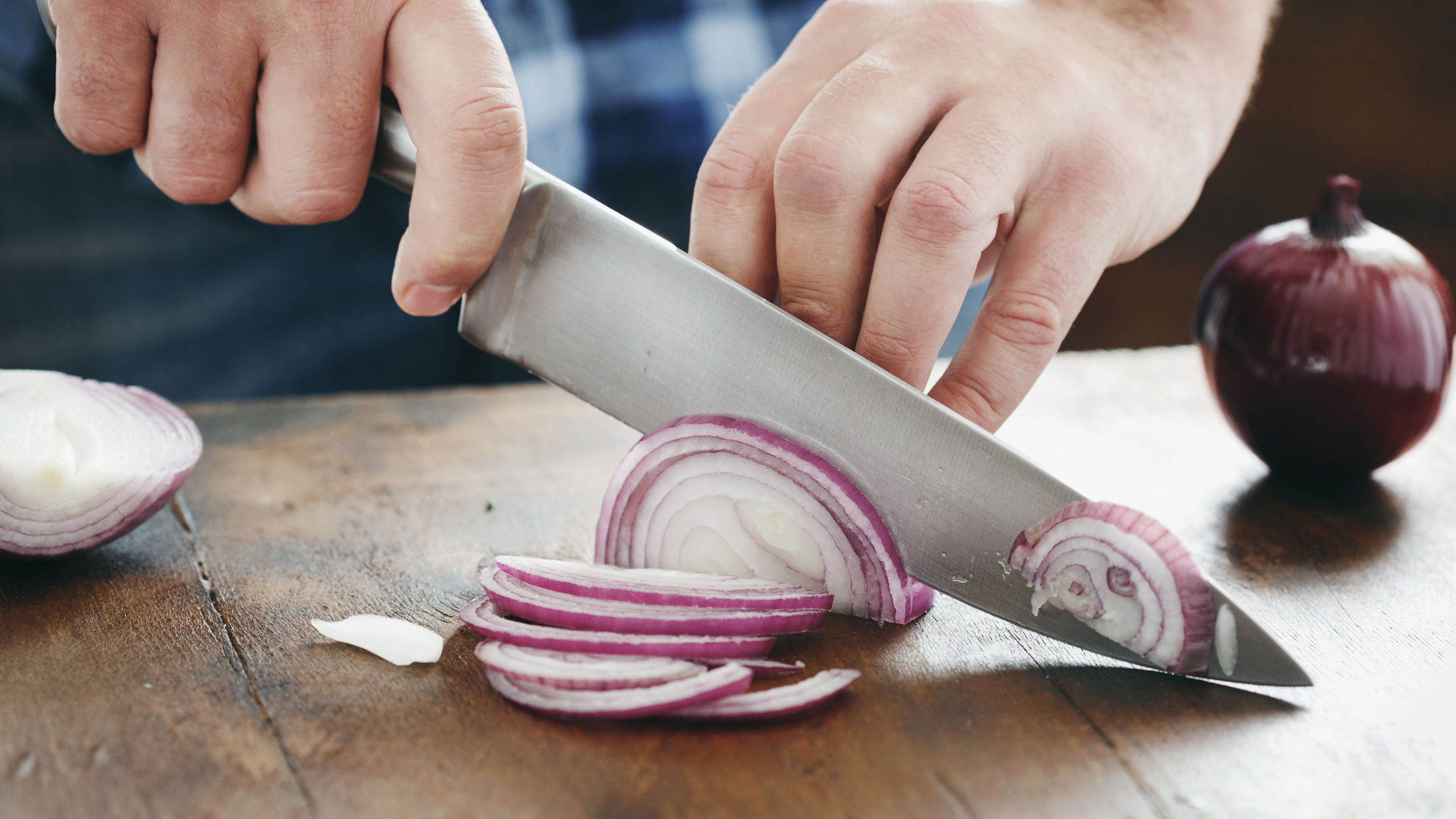What Knife Should You Use for Chopping, Slicing, and Dicing?
Written By James Morgan
When it comes to barbecue, having the right tools is essential. Among these tools, the knife you use for chopping, slicing, and dicing can make a significant difference. As barbecue enthusiasts, understanding the best knife for these tasks not only enhances our cooking efficiency but also elevates the overall barbecue experience.

The Importance of a Good Knife
Every pitmaster knows that precision is key in barbecue. Whether you're preparing meat, vegetables, or other ingredients, a good knife can make all the difference. The right knife allows for even cuts, ensuring that your barbecue ingredients cook evenly. It also helps in maintaining the integrity of the food, preserving flavors and textures.

Chefs Knife: The All-Rounder
The Chef's Knife is often considered the most versatile knife in the kitchen. Its broad and sharp blade can handle a variety of tasks, from chopping herbs to slicing meats. When it comes to barbecuing, the Chef's Knife stands out for its ability to make clean cuts through both vegetables and proteins, making it an indispensable tool for any barbecue enthusiast.

Paring Knife: Precision at its Best
A Paring Knife is essential for tasks that require more precision, such as peeling, trimming, and intricate cutting. When preparing smaller ingredients or performing delicate work, this knife offers the control needed to make precise cuts. It is particularly useful for garnishing and for tasks where a bigger knife would be unwieldy.

Santoku Knife: The Japanese Marvel
The Santoku Knife, originating from Japan, is another excellent option for barbecuing tasks. Similar to the Chef's Knife but generally shorter and more lightweight, it excels at slicing, dicing, and chopping. Its thin blade allows for more refined cuts, making it a favorite for barbecue enthusiasts focused on presentation as well as taste.
Slicing Knife: For Perfect Portions
A Slicing Knife is designed specifically for slicing cooked meats. Its long, thin blade ensures that you can make clean, even slices, which is crucial for serving perfectly portioned meats at your barbecue. This knife is particularly useful for larger cuts of meat such as brisket or roasts, where maintaining the structure and presentation of the meat is vital.
Finding Your Perfect Knife
Choosing the right knife depends on a variety of factors, including the type of food you typically prepare, your personal cutting style, and your comfort. Here's a handy guide to help you choose:
- Consider the Type of Food: Different knives excel at different tasks. For example, a Chef's Knife is great for general use, while a Slicing Knife is perfect for meats.
- Think About Comfort: The best knife is one that feels comfortable in your hand. Handle a few different types to see which one feels right for you.
- Budget: Knives can range from very affordable to quite expensive. Decide on a budget that fits your needs and look for a knife within that range.
Maintaining Your Knives
It's not just about having the right knife but also about maintaining it. Regular sharpening, proper storage, and careful cleaning can keep your knives in peak condition, ensuring that they serve you well for years to come. Here are some tips:
- Sharpen your knives regularly to maintain their edge.
- Store them in a knife block or magnetic strip to prevent damage.
- Always hand wash your knives and dry them immediately to avoid rust.
Knife Skills Every Barbecue Enthusiast Should Know
Having the right knife is only part of the equation. Knowing how to use it effectively is equally important. Here are some basic knife skills that can enhance your barbecuing experience:
- Chopping: Use a Chef's Knife to chop herbs and vegetables quickly and efficiently. Keep your fingers tucked away to avoid accidents.
- Slicing: For precise slicing, especially of meats, use a Slicing Knife. Aim for even, consistent slices to ensure uniform cooking.
- Dicing: Employ the Santoku Knife for dicing vegetables. Its thin blade allows for precise cuts, making it perfect for preparing ingredients for marinades and side dishes.
Conclusion
In the world of barbecue, the right knife can make a significant difference. From the versatile Chef's Knife to the precision Paring Knife, each tool has its unique advantages. By understanding and mastering these knives, barbecue enthusiasts can elevate their cooking and create delicious, mouth-watering dishes every time.
FAQ
Q: Can I use the same knife for all tasks?
A: While you can use a versatile knife like the Chef's Knife for most tasks, having specialized knives like a Paring Knife for precision tasks and a Slicing Knife for meats can greatly enhance your efficiency and results.
Q: How often should I sharpen my knives?
A: For optimal performance, it's recommended to sharpen your knives every few months, depending on your usage. Regular honing can also help maintain the edge between sharpenings.
Q: What is the best way to store knives?
A: Storing knives in a knife block or on a magnetic strip is ideal. Avoid keeping them loose in drawers, as this can dull the blades and pose a safety hazard.
Knife age | Knife skills guide
As an Amazon Associate, I earn from qualifying purchases.



